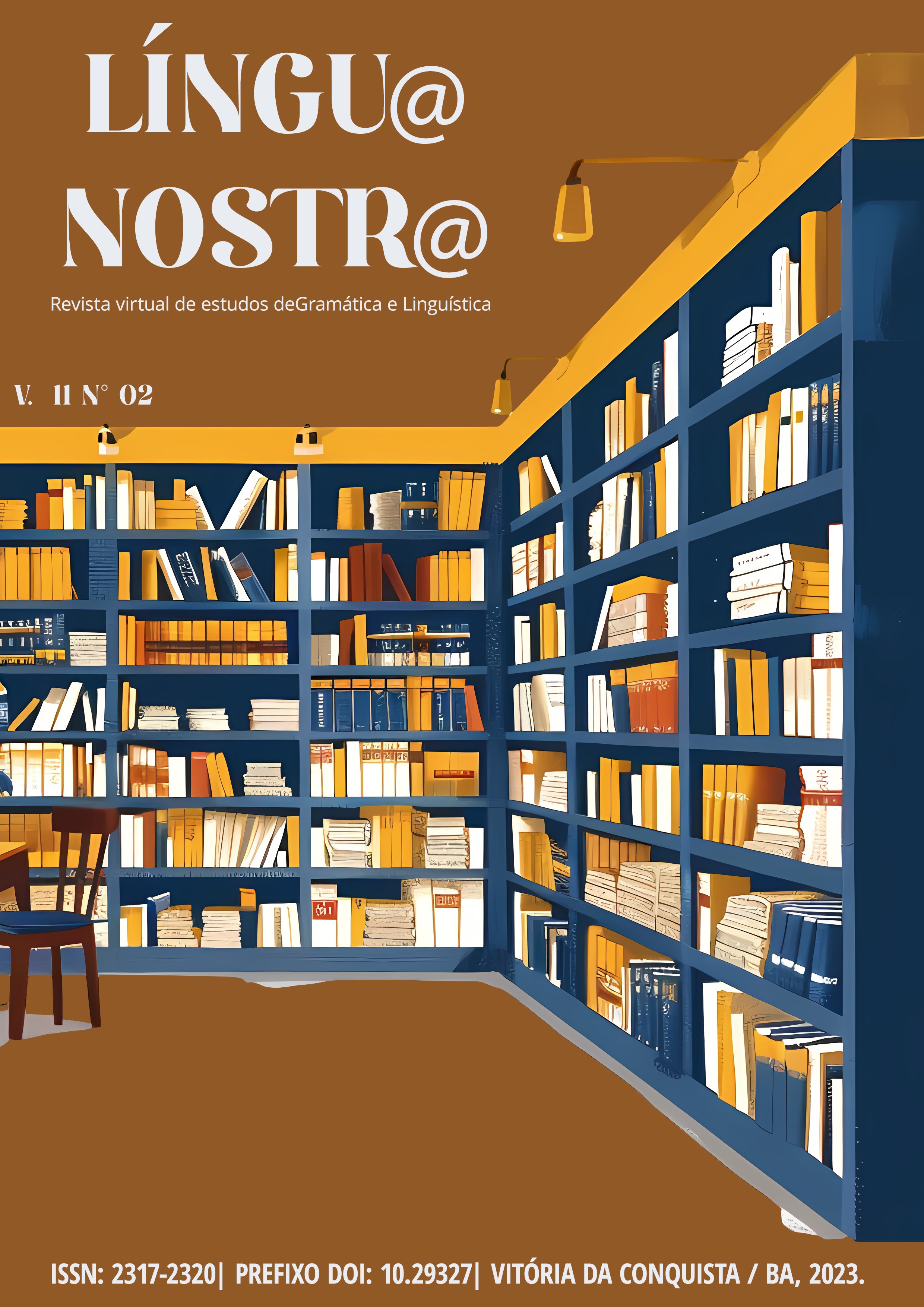Os Conhecimentos teóricos dos futuros professores sobre a avaliação das capacidades de leitura
DOI:
https://doi.org/10.22481/lnostra.v11i2.13806Keywords:
Assessment. Reading. Theoretical Basis. Supervised internshipAbstract
The central point of this study focuses on theoretical knowledge regarding reading assessment, brought by future teachers of the Literature course/UFPI in the supervised internship. The general question is: What teaching knowledge do future language/Portuguese teachers bring to the reading class, in the supervised internship, in terms of assessment? Thus, the general objective is to: Investigate the theoretical knowledge about reading assessment, brought to the classroom, by future teachers of the Literature course/UFPI, at the time of conducting, in the supervised internship. The specific objectives are: Identify the theoretical basis that future teachers of Portuguese Literature bring to the assessment of reading and analyze the instruments and interventions, indicated in a questionnaire, on the knowledge used by future teachers to assess reading in the classroom. The theoretical contribution brings views from authors such as: Hoffmann (1993), Rabelo (1998), Sant’Anna (1999), Luckesi (2003) and Silva, Sousa and Sousa (2022) with regard to evaluation; and Kato (1999), Rojo (2004), Azevedo (2007), Kleiman (2008), Arena (2010), Silva (2011), Martins (2012), Lopes and Carvalho (2012), Pereira and Scliar-Cabral (2012 ) and Girotto (2013) regarding reading skills. The data for this investigation were collected in a Supervised Internship III class, of the Portuguese Literature course, at the Federal University of Piauí. The research carried out is in the field, being qualitative with an ethnographic aspect in the classroom. The result shows that evaluation is not treated as reflection, but only as a carrier of results.
Downloads
References
ANDRÉ, Marli. Etnografia da Prática Escolar. Campinas, SP, Papirus, 2011.
AZEVEDO, Cleomar. Ler e escrever: um direito de todos. Revista Moçambras: acolhendo a alfabetização nos países de língua portuguesa, São Paulo, ano 1, n. 2, 2007.
BORTONI-RICARDO, Stella Maris. O professor pesquisador: introdução à pesquisa qualitativa. São Paulo: Parábola Editorial. 2008.
GÜNTHER, Hartmut. Pesquisa qualitativa versus pesquisa quantitativa: esta é a questão?. Psicologia: Teoria e Pesquisa [online]. 2006, v. 22, n. 2 [Acessado 6 Julho 2022] , pp. 201-209. Disponível em: https://doi.org/10.1590/S0102-37722006000200010. Acesso: 09 de set 2023
HOFFMANN, Jussara M. L. Avaliação: mito, desafio. Uma perspectiva construtivista. Porto Alegre: Educação e Realidade, 1993
KLEIMAN, Ângela. Oficina de leitura: teoria & prática. 6 ed. Campinas, SP: Pontes, 1998.
KOCH, I. V., ELIAS, V. M. Ler e compreender: os sentidos do texto – 2ª Ed., 1ª reimpressão. - São Paulo: Contexto, 2007.
LUCKESI, C. C. Avaliação da aprendizagem escolar: estudos e proposições. 15 ed. São Paulo: Cortez, 2003.
LAKATOS, Eva Maria. Fundamentos de metodologia científica/ Marina de Andrade Marconi, Eva Maria Lakatos. - 5. ed. - São Paulo : Atlas 2002.
MARTINS, Maria Helena. O que é leitura. 19 ed. São Paulo: Brasiliense, 2012.
MOREIRA, Herivelto. Metodologia da pesquisa para o professor pesquisador. Rio de Janeiro: DP&A, 2006.
OLIVEIRO, Maria Marly de. Como fazer pesquisa qualitativa. Petrópolis, RJ: Vozes, 2007.
RICHARDSON, Roberto Jarry. Pesquisa social: métodos e técnicas. 3ed. – 11. Ed. Reimpr. São Paulo: Atlas, 2010.
RABELO, Edmar H. Avaliação: novos tempos, novas práticas. Rio de Janeiro: Vozes, 1998.
ROJO, Roxane . Letramento e capacidades de leitura para a cidadania, LAEL/PUC-SP 2004. 8 p. Disponível em: https://www.academia.edu/1387699/Letramento_e_capacidades_de_leitura_para_a_cidadania Acesso em: 14 set.2020.
SANT’ANNA, Ilza M. Por que avaliar? Como avaliar? Rio de Janeiro: Vozes, 1999.
Downloads
Published
How to Cite
Issue
Section
License
Copyright (c) 2024 Língu@ Nostr@

This work is licensed under a Creative Commons Attribution 4.0 International License.






